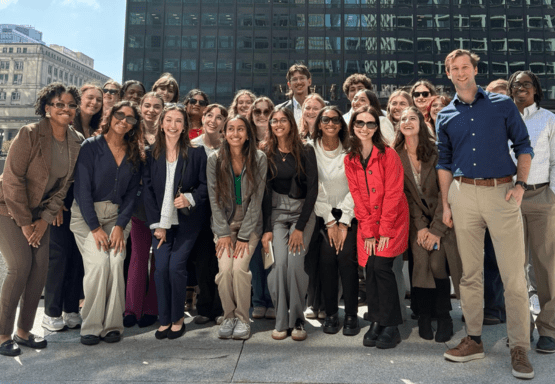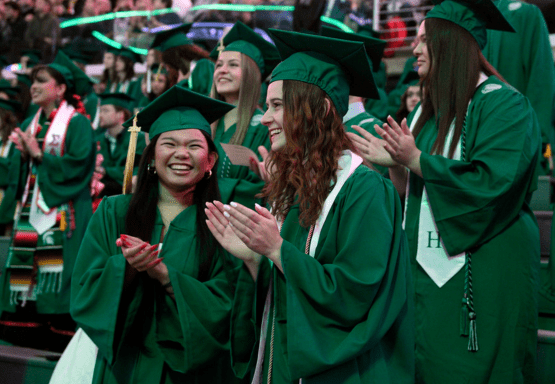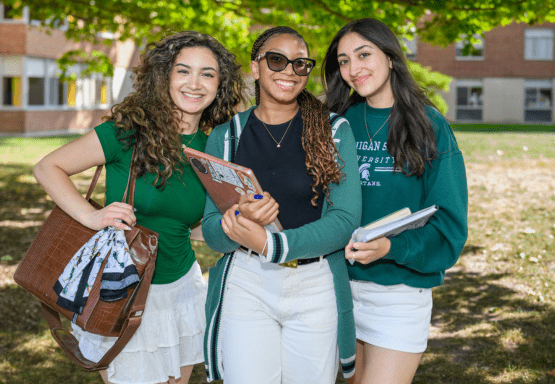Scholarships for incoming students open annually in March. The scholarship application process for the 2025-26 academic year has now closed. Contact Jahshua Smith (jmcadmin@msu.edu) with questions.
One award given annually to an incoming first-year student (non-renewable). Eligibility is open to all without restriction or preference based on race, color, ethnicity, national origin, sex, or other protected personal identity.
The Nelson and Marlene Cummings Scholarship was founded by Jeffrey Cummings, a 1984 Madison graduate, to honor his parents and their life-long commitment to public affairs, civic activities and education.
This essay competition requires a 1,000 word (max-essay and is open to all incoming first-year students who are planning to enroll in James Madison College at Michigan State University during the upcoming fall term). Essay prompt will be provided when applications open for 2026-27 academic year in spring 2026.
Open to every student admitted to the James Madison College first-year class, this scholarship is designed to emphasize the importance of diversity in the college and will be awarded to the essayist most likely to contribute to or actively support the goal of diversity. This award is supported through the JMC Alumni Association.
Open to every admitted student in the first-year class, this scholarship is designed to introduce students to the college’s focus on interdisciplinary study in the social sciences and public affairs. This award is supported through the JMC Alumni Association.
MSU programs and activities are not restricted based on race, sex, color, ethnicity, national origin or other protected personal identity. This scholarship is open to all incoming JMC students without restriction or preference based on protected personal identity.
This gift honors A. Gordon Adams, Jr. a 1942 graduate of Michigan State University who spent most of his professional career with the First Michigan Corporation specializing in bond sales for government units, agencies and public service organizations. His own career has affirmed his belief in the benefits of a broad and liberal education and in the importance of students whose understandings of public affairs can forge public and private linkages that emphasize the value of service.
MSU programs and activities are not restricted based on race, sex, color, ethnicity, national origin or other protected personal identity. This scholarship is open to all incoming JMC students without restriction or preference based on protected personal identity.
This scholarship honors two accomplished and generous supporters of James Madison College, Michigan State University and public affairs education. Ms. Marilyn Darling is a graduate of the college as well as a very active leader of Madison’s Board of Visitors. It is the donor’s hope that recipients of this award will feel an ethical obligation at a future date to support the college and actively participate in assisting future generations of Madison students.
MSU programs and activities are not restricted based on race, sex, color, ethnicity, national origin or other protected personal identity. This scholarship is open to all incoming JMC students without restriction or preference based on protected personal identity
Open for students admitted to James Madison College’s first-year class, with primary preference for graduates of high schools in Genesee County, Michigan. This award honors Daniel Oginsky, who grew up in the Flint, Michigan area before attending James Madison College and going on to law school. This award was created to support students from the Genesee County area who can in turn later help support their own communities.
MSU programs and activities are not restricted based on race, sex, color, ethnicity, national origin or other protected personal identity. This scholarship is open to all incoming JMC students without restriction or preference based on protected personal identity.
Open to every student admitted to the James Madison College first-year class. This gift honors Judge Andrew Cameron. In the years following graduation from MSU, Andrew Cameron obtained a law degree and worked in government and private law practice. His legal career, to date, has culminated in the attainment of elected office to serve his community as a County Court Judge. With this success, it is Judge Cameron’s desire to create a scholarship to James Madison College at MSU, for select students for whom a standard course of study is not enough. It is his intent to reward those who may benefit from the continuing legacy of quality education that Andrew received from JMC and MSU.
MSU programs and activities are not restricted based on race, sex, color, ethnicity, national origin or other protected personal identity. This scholarship is open to all incoming JMC students without restriction or preference based on protected personal identity.
Open to every student admitted to the James Madison College first-year class, this scholarship honors the family members of John Habib, a Diplomat in Residence with the U.S. State Department who has previously taught at James Madison College as a visiting professor. The awards are in honor of his nine siblings: Eva Malcoun, Agnes Moffett, Bergita Nahas, Jemelia Thomas, Backus Habib, Margaret Pagano, Lilian Andary, Joseph Habib and Thomas Habib.
John’s financial support for student scholarships serves to advance understanding, knowledge, and determination to seek solutions to complicated contemporary world issues.
MSU programs and activities are not restricted based on race, sex, color, ethnicity, national origin or other protected personal identity. This scholarship is open to all incoming JMC students without restriction or preference based on protected personal identity.
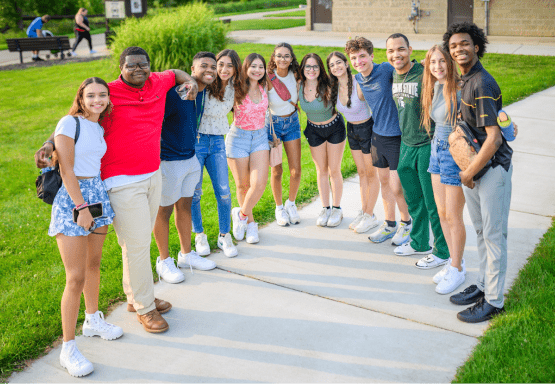
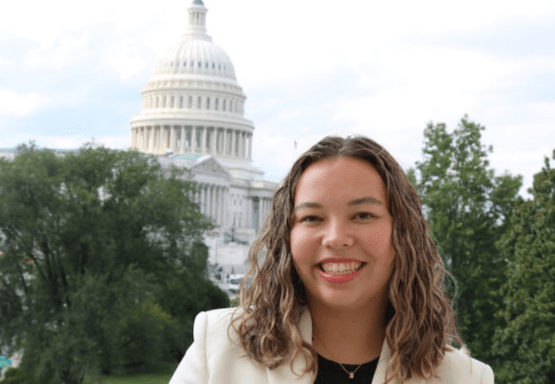
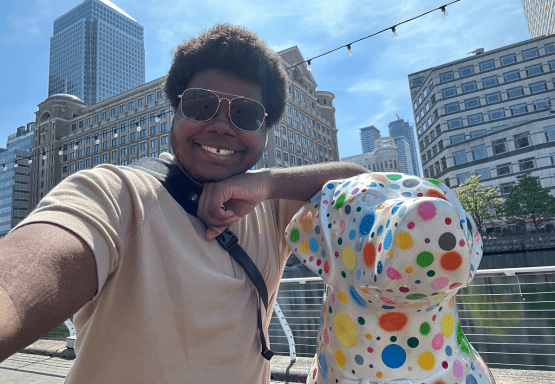
.png?h=384&iar=0&w=555)
